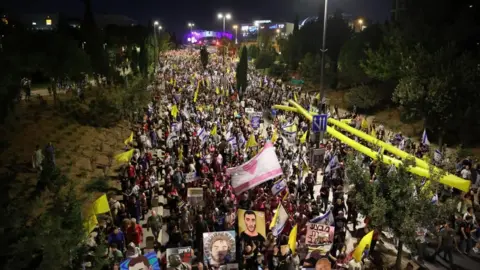The ordeal began in March when armed men seized 56 residents from Banga village within Kauran Namoda local government area. Following the abduction, the bandits demanded a ransom of one million naira (approximately $655). Local government chairman Manniru Haidara Kaura stated that after negotiations, the families managed to pay part of the ransom, leading to the release of 18 hostages, including 17 women and one boy, on Saturday.
Tragically, Kaura revealed that most of those killed were young, with the attackers displaying extreme brutality. He lamented, "They were slaughtered like rams," emphasizing the need for accountability and expressing disbelief at the bandits' savage actions against their own community members.
Out of the 18 released, 16 individuals are currently hospitalized, receiving treatment for their injuries. Meanwhile, the bodies of the 38 slain victims are presumed lost, as it is common for kidnappers to withhold corpses from families.
In an effort to combat the increasing wave of kidnappings, Nigeria enacted a law in 2022 that penalizes ransom payments—carrying a minimum jail term of 15 years. Despite this, enforcement remains questionable, as no one has faced arrest under these charges yet. Additionally, the law stipulates the death penalty in cases where victims are killed during abductions.
Many families continue feeling pressured to pay ransoms, citing the government's inability to ensure their safety amidst the rising tide of violence and insecurity in the region. The kidnapping epidemic persists, leaving communities in despair as they grapple with these devastating circumstances.
Tragically, Kaura revealed that most of those killed were young, with the attackers displaying extreme brutality. He lamented, "They were slaughtered like rams," emphasizing the need for accountability and expressing disbelief at the bandits' savage actions against their own community members.
Out of the 18 released, 16 individuals are currently hospitalized, receiving treatment for their injuries. Meanwhile, the bodies of the 38 slain victims are presumed lost, as it is common for kidnappers to withhold corpses from families.
In an effort to combat the increasing wave of kidnappings, Nigeria enacted a law in 2022 that penalizes ransom payments—carrying a minimum jail term of 15 years. Despite this, enforcement remains questionable, as no one has faced arrest under these charges yet. Additionally, the law stipulates the death penalty in cases where victims are killed during abductions.
Many families continue feeling pressured to pay ransoms, citing the government's inability to ensure their safety amidst the rising tide of violence and insecurity in the region. The kidnapping epidemic persists, leaving communities in despair as they grapple with these devastating circumstances.





















